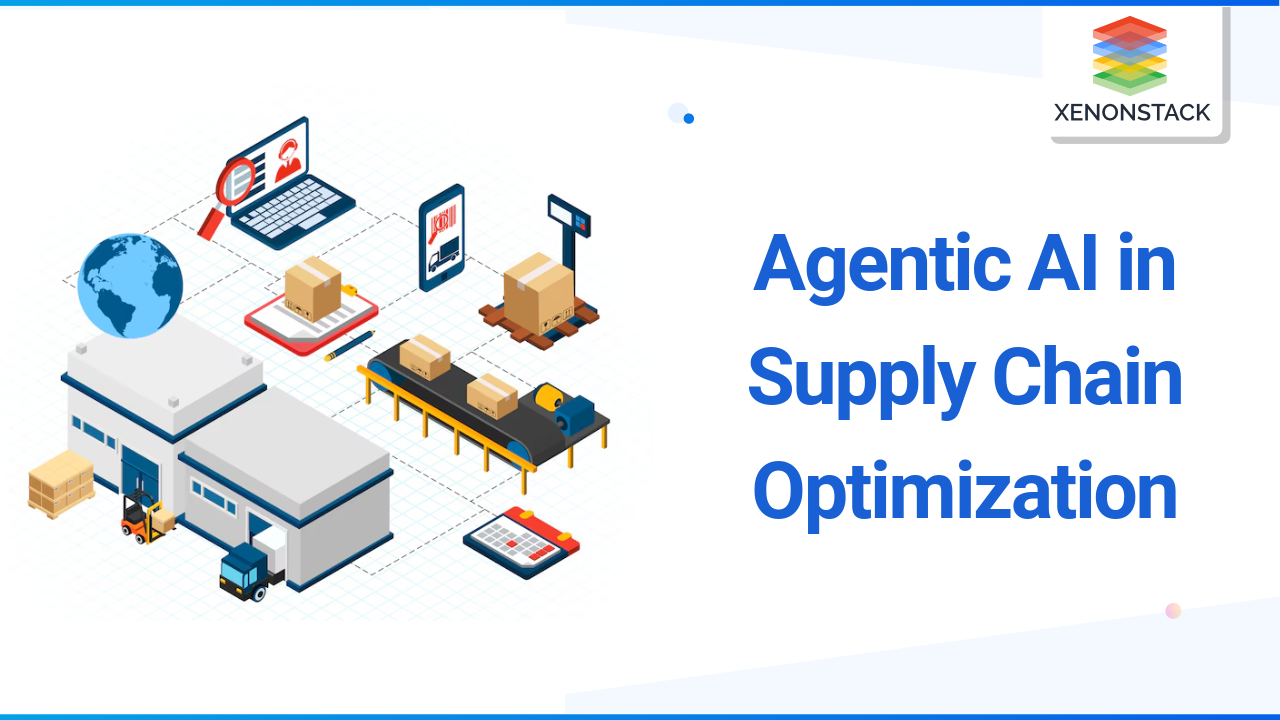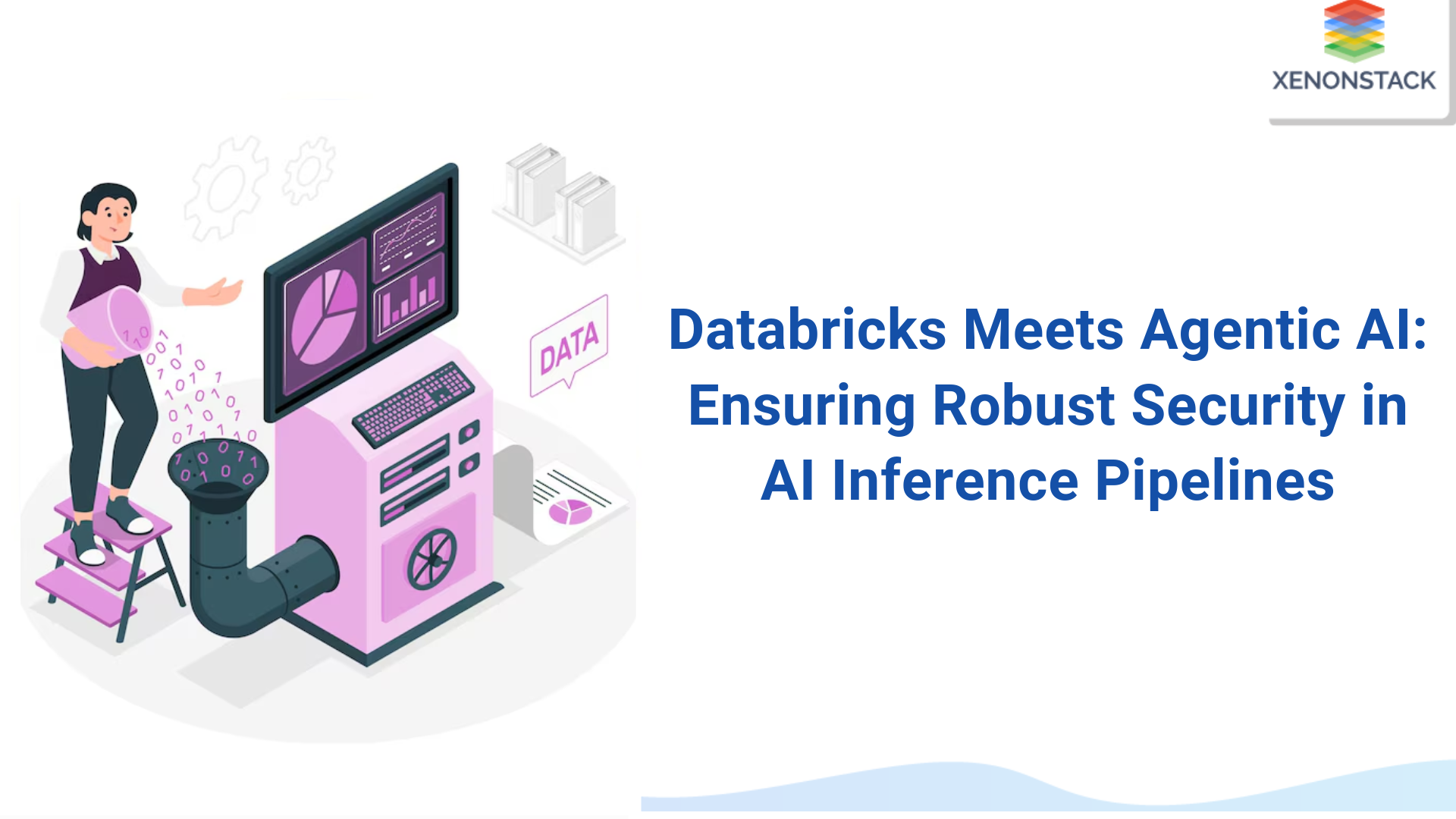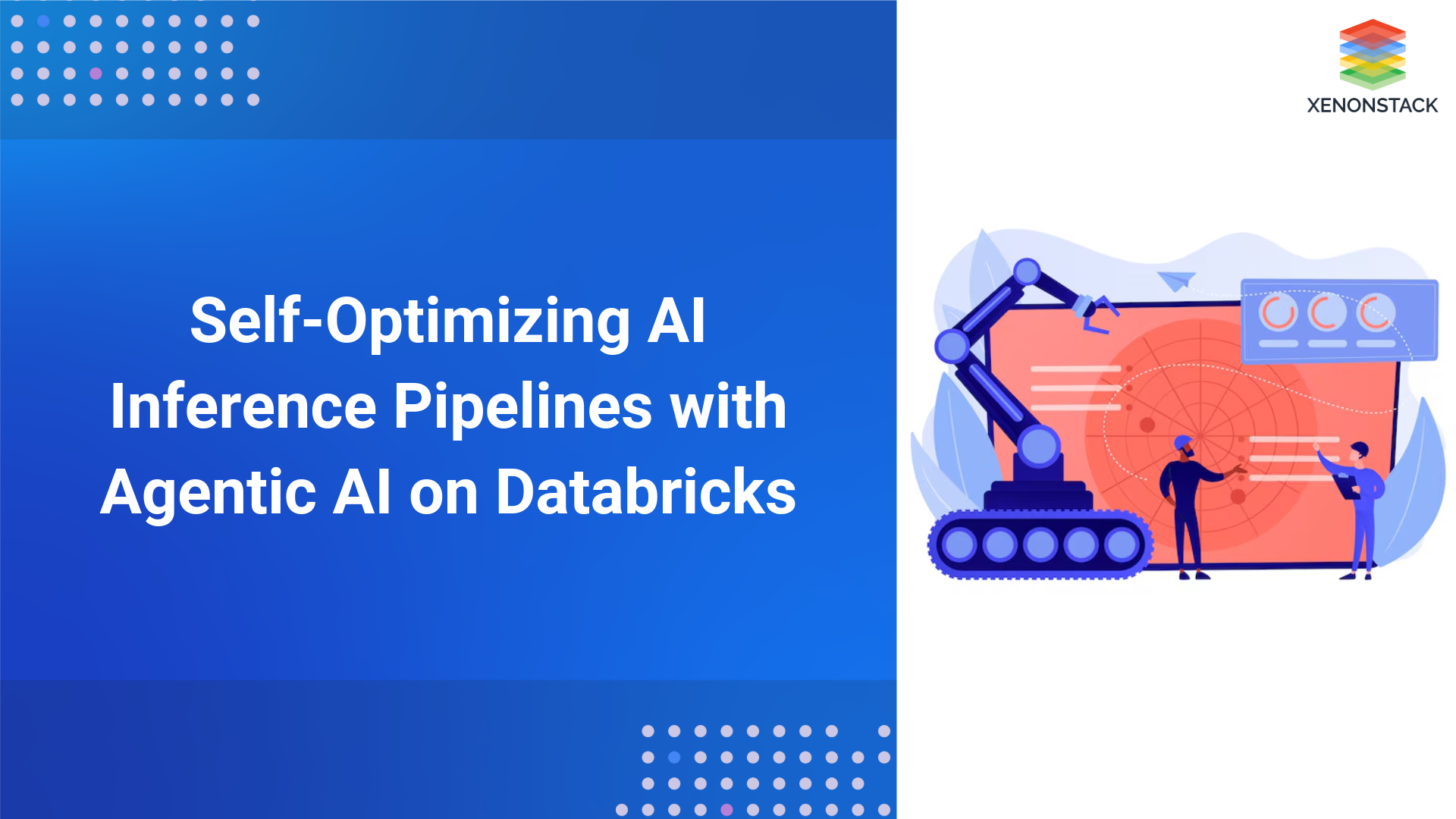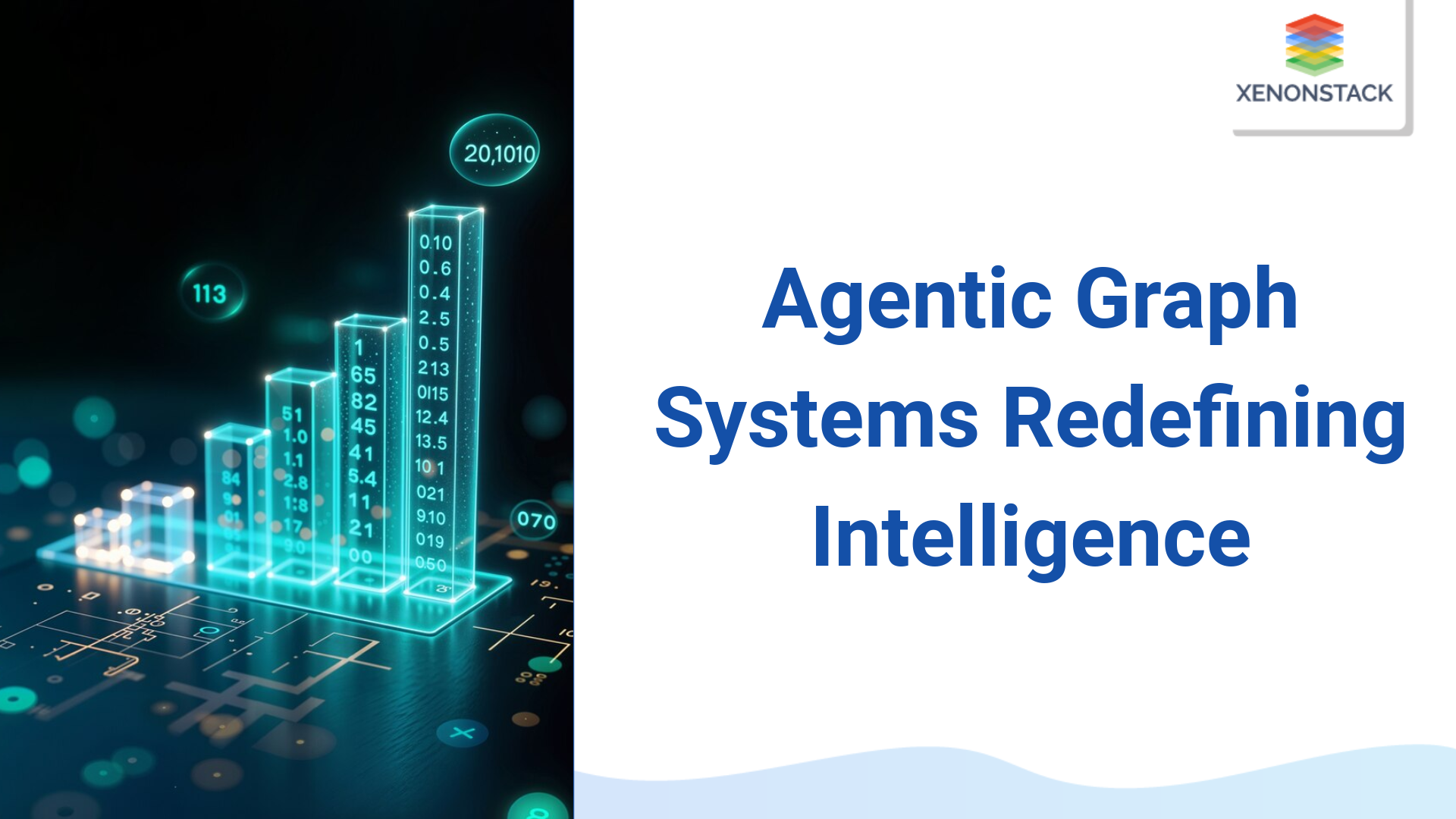
As global supply chains grow more complex, businesses face mounting pressure to boost efficiency, manage risks, and respond to demand in real-time. AI agents—powered by autonomous capabilities—are essential for reshaping supply chain operations. These intelligent agents combine automation, analytics, and decision-making to optimize everything from procurement to logistics.
Understanding AI Agents in Supply Chains
At their core, AI agents are software entities that mimic the capabilities of human reasoning and decision-making—at scale and with incredible speed. Think of them as digital employees who can sense their environment, think through possible actions, and act to achieve specific goals, such as cost savings, timely delivery, or risk mitigation.
AI Agents in Action
Observe the Environment
AI agents continuously monitor internal and external data sources—sales trends, supplier performance, traffic updates, weather patterns, geopolitical events, etc. This gives them a real-time understanding of the supply chain's condition.Learn from Data
Through machine learning, agents detect patterns, anomalies, and trends from vast datasets. For example, they can identify recurring bottlenecks in warehouse processing or shifts in customer buying behaviour.Take Goal-Oriented Actions
Once equipped with insights, AI agents take decisions like reordering stock, rerouting shipments, or renegotiating supplier contracts. They follow optimization strategies that align with business KPIs such as cost, speed, sustainability, and service quality.
Why They Matter in the Supply Chain
AI agents shift from reactive operations to proactive and predictive operations. Instead of waiting for disruption to occur—like a late shipment or a supplier delay—AI agents can foresee the issue and initiate corrective measures before it impacts the business.
This results in:
-
Fewer disruptions
-
Better service levels
-
Greater supply chain transparency
-
Faster adaptation to market changes
In a nutshell, AI agents act like smart collaborators in your supply chain, continuously learning and adapting to drive better decisions at every node—from planning and sourcing to production and delivery.
Key Supply Chain Challenges AI Agents Solve
The supply chain industry faces many challenges in today's dynamic and competitive market. Some of the significant challenges are:
-
Increasing Customer Expectations: To meet customers' evolving needs, supply chain managers must enhance the speed, affordability, and customization of product and service delivery. Additionally, customers now anticipate greater transparency and visibility regarding the progress of their orders and shipments. Supply chain managers must streamline operations and leverage Agentic AI for customer service and technologies like blockchain, artificial intelligence, and the Internet of Things (IoT) to improve customer satisfaction.
-
Managing Risks and Disruptions: Supply chain operations are vulnerable to dangers and disorders such as natural disasters, cyberattacks, trade wars, labour shortages, and regulatory changes. These can cause delays, losses, or quality issues in the supply chain. Supply chain managers must proactively mitigate risks for resilient operations, utilizing Agentic AI for compliance to ensure adherence to regulations.
-
Balancing Costs and Sustainability: Supply chain managers must minimize expenditures and enhance operational efficiency while upholding environmental and social responsibility standards. They must implement lean manufacturing, a circular economy, green logistics, and ethical sourcing strategies to minimize waste, emissions, and resource consumption and support social causes and communities. This is where Agentic AI for sustainability comes into play, helping organizations meet their goals.
-
Demand Variability: Fluctuations in customer demand pose challenges for supply chain optimization. Demand can vary due to seasonality, market trends, unforeseen events, or changing customer preferences. Managing and predicting demand accurately is crucial for optimizing inventory levels, production schedules, and distribution plans.
-
Supply Chain Visibility: A lack of visibility into the supply chain network can hinder optimization efforts. Inefficiencies, delays, and increased costs can result from incomplete or delayed information regarding inventory levels, transportation status, and supplier performance. It is crucial to achieve end-to-end visibility to identify bottlenecks and make well-informed decisions.
-
Transportation and Logistics: Optimizing transportation and logistics operations is a significant challenge in supply chain optimization. Efficient route planning, carrier selection, load consolidation, and minimizing transportation costs are essential. Factors like traffic congestion, changing regulations, and capacity constraints complicate transportation management.
Agentic AI Use Cases in Supply Chain
Agentic AI offers a multitude of valuable use cases in supply chain management, revolutionizing processes and decision-making. Here's a detailed exploration of these applications:
 Fig 1: Use Cases of Supply Chain
Fig 1: Use Cases of Supply Chain
1. Demand Forecasting and Inventory Optimization
What it does
It helps companies anticipate customer demand and adjust inventory levels accordingly, minimizing stockouts and excess stock. This leads to smoother operations, fewer lost sales, and more efficient cash flow usage.
How it works
-
Collects data from past sales, market trends, promotions, and external factors.
-
It uses AI to generate probabilistic forecasts and simulate demand fluctuations.
-
Adjust inventory targets and procurement plans in real-time.
-
Automates replenishment and supply planning decisions.
Why it matters
Boosts forecast accuracy, lowers inventory costs, and prevents disruption. It enables businesses to meet customer expectations without wasting capital on unnecessary stock.
2. Procurement and Supplier Strategy
What it does
Optimizes sourcing decisions by evaluating supplier performance, pricing, reliability, and risk profiles. Enables automated procurement decisions and negotiations.
How it works
-
Analyzes supplier KPIs, contracts, and market pricing data.
-
Uses AI models to score and compare suppliers based on dynamic needs.
-
Simulates sourcing strategies and negotiates autonomously where applicable.
-
Recommends or initiates supplier switches when needed.
Why it matters
Reduces procurement costs, enhances supplier reliability, and mitigates risk from geopolitical or operational disruptions.
3. Logistics and Route Optimization
What it does:
Optimizing routes, fleet usage, and warehouse locations improves delivery efficiency while reducing fuel costs and delays.
How it works
-
Data on delivery schedules, traffic patterns, weather, and fuel prices is gathered.
-
Applies route optimization algorithms to minimize travel time and cost.
-
Dynamically reroutes vehicles in real-time based on disruptions.
-
Suggests strategic warehouse locations using simulation models.
Why it matters
It lowers transportation costs, increases delivery speed, and enhances overall customer satisfaction while reducing carbon emissions.
4. Predictive Maintenance
What it does:
Prevents equipment failures by forecasting wear and tear in logistics and manufacturing systems before breakdowns happen.
How it works
-
Continuously collects sensor data from machines, vehicles, and robotics.
-
Detects anomalies or degradation trends using predictive algorithms.
-
Alerts teams or triggers automated maintenance requests.
-
Schedules servicing to reduce disruptions.
Why it matters
Reduces unplanned downtime, extends asset life, and saves costs on emergency repairs or replacements.
5. Supply Chain Simulation and Risk Management
What it does
Tests various supply chain scenarios to assess the impact of potential disruptions and identify the best mitigation strategies.
How it works
-
Creates digital twins of the supply chain network.
-
Runs simulations for events like supplier shutdowns or demand spikes.
-
Measures bottlenecks, cost implications, and response times.
-
Recommends contingency strategies and reallocation of resources.
Why it matters
Builds a more resilient supply chain, ensures faster recovery from disruptions, and supports strategic risk planning.
6. Waste Reduction and Circular Economy
What it does
Identifies waste in production, packaging, or logistics and supports reuse, recycling, and remanufacturing practices.
How it works
-
Tracks material flow, usage patterns, and excess production.
-
Recommends process changes to reduce scrap, defects, and overproduction.
-
Suggests reuse of returned goods or components.
-
Supports closed-loop supply chains.
Why it matters
Decreases environmental impact lowers costs and aligns businesses with sustainability and ESG goals.
7. New Product Launch and Personalization
What it does
Facilitates the smooth introduction of new products by optimizing manufacturing and distribution, especially for personalized or custom offerings.
How it works
-
Simulates launch scenarios based on market data and production capacity.
-
Predicts initial demand and adjusts production schedules accordingly.
-
Integrates customer feedback into product customization.
-
Adapts logistics to meet specific order requirements.
Why it matters
Improves time-to-market, reduces launch risk, and supports mass customization strategies that boost customer satisfaction.
8. Real-Time Visibility and Anomaly Detection
What it does
Provides a live view of the entire supply chain and identifies anomalies like delays, quality issues, or compliance breaches as they happen.
How it works
-
Monitors data streams from logistics, supplier systems, and operations.
-
Detects irregularities in KPIs and flags deviations.
-
It uses dashboards and alerts to notify teams in real-time.
-
Triggers automated or manual responses based on severity.
Why it matters
Improves agility, enhances collaboration, and prevents minor issues from becoming significant disruptions.
9. Automated Documentation and Administrative Tasks
What it does
Streamlines routine paperwork by automating tasks like invoice generation, purchase orders, and shipping documentation—reducing errors and saving time.
How it works
-
Extracts and validates data from procurement, sales, and logistics systems.
-
Generates standard documentation (invoices, manifests, etc.) based on predefined templates.
-
Integrates with Agents and supply chain platforms to auto-send and archive documents.
-
Tracks status and flags incomplete or incorrect entries for review.
Why it matters
Reduces manual workload, enhances data accuracy, accelerates processing times, and ensures compliance with documentation standards.
10. Collaborative Planning and Stakeholder Engagement
What it does
Enables real-time coordination across suppliers, partners, and internal teams by centralizing communication and planning.
How it works
-
Shares up-to-date operational data and forecasts across the network.
-
Enables co-planning through shared dashboards, calendars, and digital twins.
-
Uses AI agents to automate meeting scheduling, follow-ups, and status reporting.
-
Integrates feedback loops from all stakeholders to improve decision-making.
Why it matters
Improves transparency, accelerates consensus-building, enhances trust, and leads to faster, more aligned supply chain responses.
11. Natural Language Interfaces
What it does
Allows supply chain professionals to interact with AI systems through simple, conversational language—eliminating the need for technical skills.
How it works
-
Uses natural language processing (NLP) to understand spoken or typed queries.
-
Connects to underlying data systems to fetch insights or execute tasks (e.g., “Show delayed shipments”).
-
Provides voice or text-based summaries, visual reports, or recommended actions.
-
Learns from user preferences to improve responses over time.
Why it matters
Democratizes access to complex supply chain data, reduces training needs, and empowers faster, more intuitive decision-making.

Sustainable Supply Chain Strategies with Agentic AI
Enhancing sustainability and profitability in supply chains requires a smart blend of ethical practices, operational efficiency, and advanced technologies. Autonomous AI agents play a pivotal role in enabling this transformation through the following strategies:
Circular Economy Enablement: Rather than discarding used products, AI-driven systems can be designed for reuse, remanufacturing, and repair. This approach reduces landfill waste, conserves raw materials, and opens new business models focused on lifecycle extension and sustainable innovation.
Digital Transformation of Decision-Making: With real-time data and predictive insights, AI agents can improve visibility, coordination, and execution across supply chain nodes. Technologies like IoT, cloud computing, and digital twins enhance transparency, leading to faster and more informed decisions.
Inclusive Stakeholder Collaboration: Smart systems can also support communication with key stakeholders—gathering input from customers, employees, partners, and regulators. This feedback loop strengthens accountability, encourages innovation, and drives initiatives that benefit the planet and the bottom line.
Benefits of Adopting Agentic AI in Supply Chain
The adoption of sustainable and cost-effective practices in supply chain management, facilitated by Agentic AI, can yield various benefits, including:
-
Improved Demand Forecasting and Inventory Optimization: Agentic AI can analyze large datasets to improve demand forecasting accuracy and autonomously adjust inventory levels. Optimizing inventory levels ensures products are readily available, minimizing waste.
-
Enhanced Customer Service and Satisfaction: Agentic AI-enabled supply chains ensure timely deliveries, improving product availability and customer satisfaction. The system can proactively address potential service issues before they impact customers.
-
Reduced Operational Costs and Waste: Eliminate non-value-added activities and reduce waste through lean and sustainable practices powered by agentic AI insights to contribute to cost reduction. These systems can continuously identify and implement cost-saving opportunities.
-
Increased Productivity and Efficiency: Enhancing supply chain efficiency with automation and data-driven decisions made by autonomous agents. This results in enhanced productivity, timely processes, and reduced delays.
-
Better Risk Management and Compliance: Agentic AI can analyze risks and provide insights to manage potential disruptions. Ensuring compliance with environmental and social standards mitigates risks and enhances the brand's reputation. The system can automatically generate compliance reports and alert stakeholders to potential issues.
Agentic AI and ML in Supply Chain Security
Agentic AI represents a significant advancement in artificial intelligence, enabling systems to autonomously make decisions, adapt in real time, and solve complex problems across dynamic environments. Agentic AI enhances traditional AI and machine learning (ML) applications in supply chain security by offering more proactive and autonomous solutions.
Key Applications of Agentic AI in Supply Chain Security:
-
Autonomous Threat Detection and Response: Agentic AI systems can independently identify and respond to security threats without human intervention. By analyzing vast amounts of data from various sources, these systems detect anomalies such as unexpected supplier activities or unusual network traffic and take pre-approved actions to mitigate potential risks.
-
Predictive Risk Assessment: Agentic AI predicts potential cybersecurity vulnerabilities and supply chain disruptions by leveraging historical data and real-time analytics. This proactive approach allows organizations to implement preventive measures, reducing the likelihood of security breaches and operational interruptions.
-
Automated Compliance Management: Ensuring compliance with security standards is crucial in supply chain operations. Agentic AI automates the monitoring and enforcement of compliance protocols, streamlining the process of security assessments and audits.
-
Enhanced Decision-Making: Agentic AI processes and analyses extensive datasets to provide actionable insights that inform strategic decisions. This capability enhances situational awareness and supports timely responses to emerging security challenges.
Real-World Implementations:
-
Maersk's Cyber Attack Response: Following a significant cyber-attack in 2017, Maersk integrated Agentic AI into its security framework. The system autonomously monitors abnormal behaviour, enabling proactive measures to prevent future attacks.
-
IBM's Watson for Cyber Security: IBM employs Agentic AI to process large volumes of data from diverse sources through its Watson platform. This enables real-time identification and mitigation of emerging threats, bolstering the security of global supply chains.
By incorporating Agentic AI, organizations can transform their supply chain security strategies, moving from reactive to proactive and autonomous threat management. This evolution enhances efficiency, reduces risks, and strengthens resilience against evolving cyber threats.
Case Study: Walmart's Implementation of Agentic AI
Demand forecasting is a real-world example of agentic AI in supply chain optimization. Accurate demand forecasting is essential for effective inventory management, production planning, and logistics optimization. Agentic AI techniques can improve the accuracy of demand forecasts by capturing complex patterns and dependencies in historical data and autonomously implementing inventory adjustments.
For instance, Walmart, one of the world's largest retailers, has implemented agentic AI for demand forecasting. Walmart's demand forecasting system, Eden, utilizes agentic AI models to predict customer demand at individual stores and automatically adjust inventory levels. The system considers historical sales data, weather patterns, local events, and economic indicators to generate highly accurate demand forecasts and trigger replenishment orders without human intervention.
Future Trends in Agentic AI for Supply Chain
As Agentic AI continues to evolve, several emerging trends will shape the future of supply chain optimization:
-
Digital Twins for Predictive Insights: Advanced systems will collaborate with digital twins—real-time virtual models of the supply chain—to simulate events, predict disruptions, and autonomously optimize operations with high accuracy.
-
Blockchain Integration: Combining blockchain and intelligent agents will enable secure, tamper-proof transactions and verifiable supplier data. Smart contracts will execute automatically, reducing manual oversight.
-
Quantum Computing in Optimization: Emerging quantum technologies will supercharge decision-making, tackling complex logistics and inventory challenges with speed and precision beyond traditional methods.
-
Multimodal Intelligence: Future platforms will analyze diverse data types, such as text, video, sensor inputs, and images, together, enabling systems to interpret supply chain events more holistically.
-
Edge-Based Decision Making: Intelligent processing will move closer to data sources—like warehouse sensors or delivery vehicles—allowing real-time decisions even without cloud connectivity, enhancing speed and autonomy.
-
Human-AI Collaboration: Rather than replacing people, these systems will complement human expertise, working side-by-side in planning, forecasting, and problem-solving to enhance outcomes.
-
Sustainability-First Intelligence: Specialized systems will focus on reducing carbon footprint, minimizing waste, and ensuring compliance with environmental regulations—while balancing costs and performance.
-
Fully Autonomous Networks: The long-term vision is a self-regulating ecosystem where AI-driven agents across suppliers, logistics providers, and retailers interact, negotiate, and optimize without human input.
Next Steps with Agentic AI in Supply Chain Management
Talk to our experts about implementing Agentic AI to build decision-centric supply chains. Learn how businesses across industries are using intelligent agents to automate tasks, optimize workflows, and make faster, data-driven decisions. Enhance your operations with systems designed for greater efficiency, adaptability, and real-time responsiveness.




